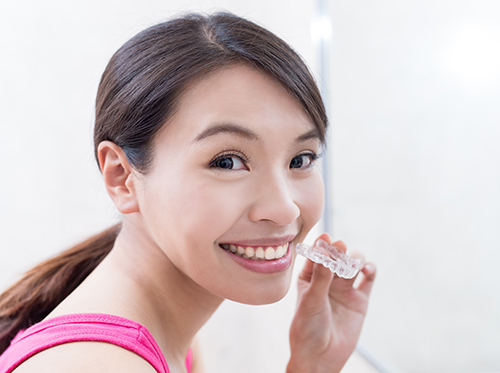Five Tips in Caring for Your Braces During Orthodontic Treatment
July 27th, 2022

After getting your braces, it is important to know how to take care of your teeth in order to ensure that your braces stay intact and do their job so that your teeth are in top-notch condition after you complete your orthodontic treatment. Today, our team at Blue Stone Dental thought we would provide you with five tips you need to know to ensure you undergo successful treatment at our Keller, TX office.
Flossing
Flossing twice a day or after every meal can help you clean areas between teeth and other places a toothbrush can miss. We also recommend using a floss threader, which can be used to help you navigate safely around your braces and brackets. It is vital to floss twice a day, preferably after lunch and before bedtime to keep gum disease and tooth decay at bay.
Brushing
Teeth and appliances should be brushed after every meal and before bedtime using fluoride toothpaste and gentle, soft strokes. We recommend using an interdental toothbrush, which can help you clean the hard-to-reach areas under wires better than an ordinary toothbrush.
Using Elastics
This phase of orthodontic treatment requires cooperation and consistency on your part. If your orthodontist has prescribed elastics, make sure they are worn at all times, except when eating meals or brushing teeth. It’s important that you wear the correct size elastics and have extras in case they are misplaced. By failing to wear your elastics for even one day, you run the risk your teeth moving back toward their original position.
Addressing Damage to Your Braces
In case your appliances are damaged, we ask that you call our team at Blue Stone Dental immediately to set up an appointment.
Eat Friendly Foods
When undergoing treatment, there are certain foods you must avoid. Foods that are hard, sticky, chewy or sour can add months to your treatment time. These includes gum, caramels, taco shells, nuts, ice, chips or hard candies.
We hope that helps! If you have any questions, please give us a call at our Keller, TX office or ask us during your next adjustment appointment!




 Website Powered by Sesame 24-7™
Website Powered by Sesame 24-7™